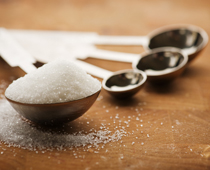
Grade 2 Speaking / Listening - Asking Questions
This English Language quiz is called 'Asking Questions' and it has been written by teachers to help you if you are studying the subject at elementary school. Playing educational quizzes is a fun way to learn if you are in the 1st or 2nd grade - aged 6 to 8.
It costs only $12.50 per month to play this quiz and over 3,500 others that help you with your school work. You can subscribe on the page at Join Us
Students should get in a habit of asking questions. Clarification is sometimes needed by students when they don’t understand. Often, students in second grade may be scared to ask questions. However, the more questions they ask, then the more comfortable they will feel about seeking clarification from their teachers. In this quiz, the students will choose questions to ask teachers for clarification or explanation based on a comment made by the teacher or picture shown to the student.
“Horses usually don’t lay down.”
“Camels have three eyelids.”
“There are many different plants in the ocean.”
“Some animals can fly backwards.”
“Seeds usually grow inside most fruits.”
Ready for more?
not all...
quizzers. Try to win a coveted spot on our Hall of Fame Page.

















